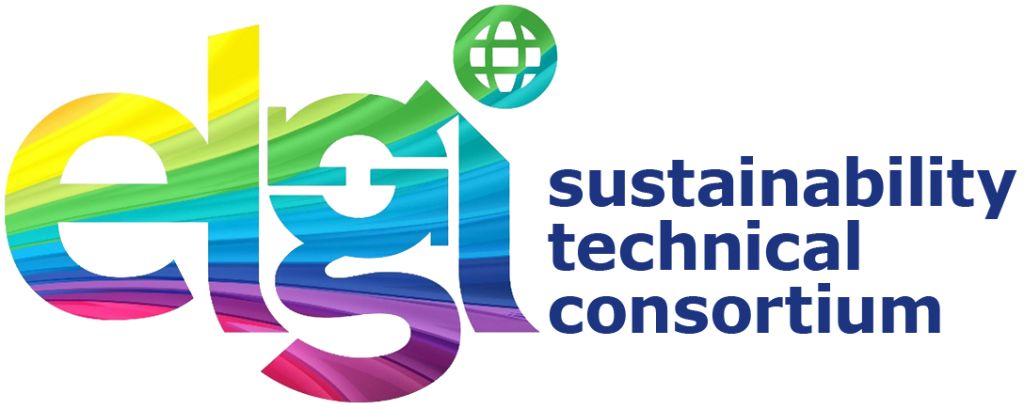ELGI Sustainability Technical Consortium

The ELGI established a Sustainability Technical Consortium, with the intention of providing guidance to define, develop and measure sustainability in the European Lubricants Industry, to address misconceptions on the industry’s sustainability capacities, and to take part in the ongoing discussions on sustainability at EU and international level.
With a clearer strategy on sustainability, the ELGI could be more proactive in defending the reputation of the sector on this matter, showcase the value it brings to the environment, society and governance, and lead the whole lubricants value chain to become more sustainable.
ELGISTC Objectives
- Understanding the uniqueness of grease compared to other lubricants with regard to sustainability particularly CO2 footprint in the production and use phase as well as end of life aspects
- Providing a sound and robust united industry voice to the European Commission – as a frontrunner in sustainability legislation – and regulators worldwide.
- Established to have a positive impact on climate over the whole value chain.
- Combine the pool of knowledge and experience between the ELGI and NLGI.
- Working with other organisations UEIL, ATIEL, VSΙ and ATC to avoid duplication of work.
- A shared vision. From an essential industry with world-wide membership from the one-man business to the global oil giants.
- Take advantage of a broad spectrum of members. Grease producers, Raw Material suppliers, End Users, Equipment manufacturers with a worldwide wealth of knowledge and experience.
- Access to relevant and updated legislation and regulatory procedures.
- Utilising ELGI’s experience of running and administering consortia. e.g. ERGTC (REACh consortium)
- To provide Companies with the knowledge and tools to ensure accountability for all aspects of their industry, and to avoid environmental damage or harmful emissions which could be limited or removed from productive processes and use of their products.
Executive Committee
Responsibilities
Governance of the TFs
Master record of all input (Regulatory)
1. Regulation & Communication Task Force
| Participation | |
| 2 Probity | Sofia Oberg |
| Cargill | Gemma Stephenson |
| RS Clare | Gavin Porter |
| Total Energies | Severine Jubault |
| Carl Bechem | Jürgen Groenen |
| Fuchs | Sabine Hausmann |
| VSI | Inga Herrmann |
Responsibilities
Review current regulations
Feed-back on new regulations (EGD, Global sustainability regulations)
Risk and impact assessment
Point of contact with regulators
Communicate at the Annual meetings
Communicating to the stakeholders on what the industry is doing.
Alignment to the SDGs (Regulator bodies, Industry partners)
Development of terminology / glossary
Communicating the benefits of the lubricant industry to the end users.
Societal responsibilities: Investigate the different paths of the ELGISTC members
2. Carbon Footprint Task Force
| Participation | |
| Cargill | Antony Harris |
| RS Clare | Elaine Littlewood |
| Eldon’s | George Dodos |
| Total Energies | Olaf Kurtz |
| Castrol* | Melissa Quinn |
| Lanxess | Wayne Mackwood |
| LPC | Archontoula Chatzaki |
| Axel Christiernsson | Mark Wheeler |
| Nynas | Mehdi Fathi |
Responsibilities
Develop Case studies and test the methodology based on the UEIL model
Cradle to Gate
Gate to Gate
Investigate the way data is shared
What are the vital parameters for our process(es)
Develop user manual for model and data collection
3. Life Cycle Analysis
| Participants | |
| Castrol* | Melissa Quinn |
| Lanxess | Wayne Mackwood |
| Clariant | Eric Nehls |
| Afton Chemical | Chris Pether |
| DuPont | Alexandra Nevskaya |
| RS Care | Elaine Littlewood |
| Quaker Houghton | Josef Barreto-Pohlen |
| Vickers Oils | Paul Vickers |
| Total Energies | Celine Verrat |
| Axel Christiernsson | Mark Wheeler |
| OEMS….. |
Responsibilities
Case Study / Particular application evaluation
End of Life
Define specific use categories
(Third) party verification
4. End user Task Force
| Participants | |
| Total Energies | Pierre Belot |
| Castrol* | Melissa Quinn |
| Afton Chemical | Joe Kaperick |
| Lanxess | Wayne Mackwood |
| Falex | Mike Anderson |
| Quaker Houghton | Josef Barreto-Pohlen |
| DuPont | Alexandra Nevskaya |
| Shell | Olaf Hoeger |
| OEMS*** | |
| VDMA? |
Responsibilities
Identify OEM requirements
Identify End user requirements
Carbon offsetting
Defining the benefit of the grease to the end user.
Define benchmarks
Grease handling (packaging / delivery systems)
Best practices (re lubrication intervals, storage)
Condition monitoring….
5. End of Life
| Participation | |
| Eldon’s | George Dodos |
| Afton Chemical | Chris Pether |
Responsibilities
Possible reuse
Industrial symbiosis
Investigate what happens to grease after use
Fate of grease
Criteria for loss levels
Define how end of life is defined

